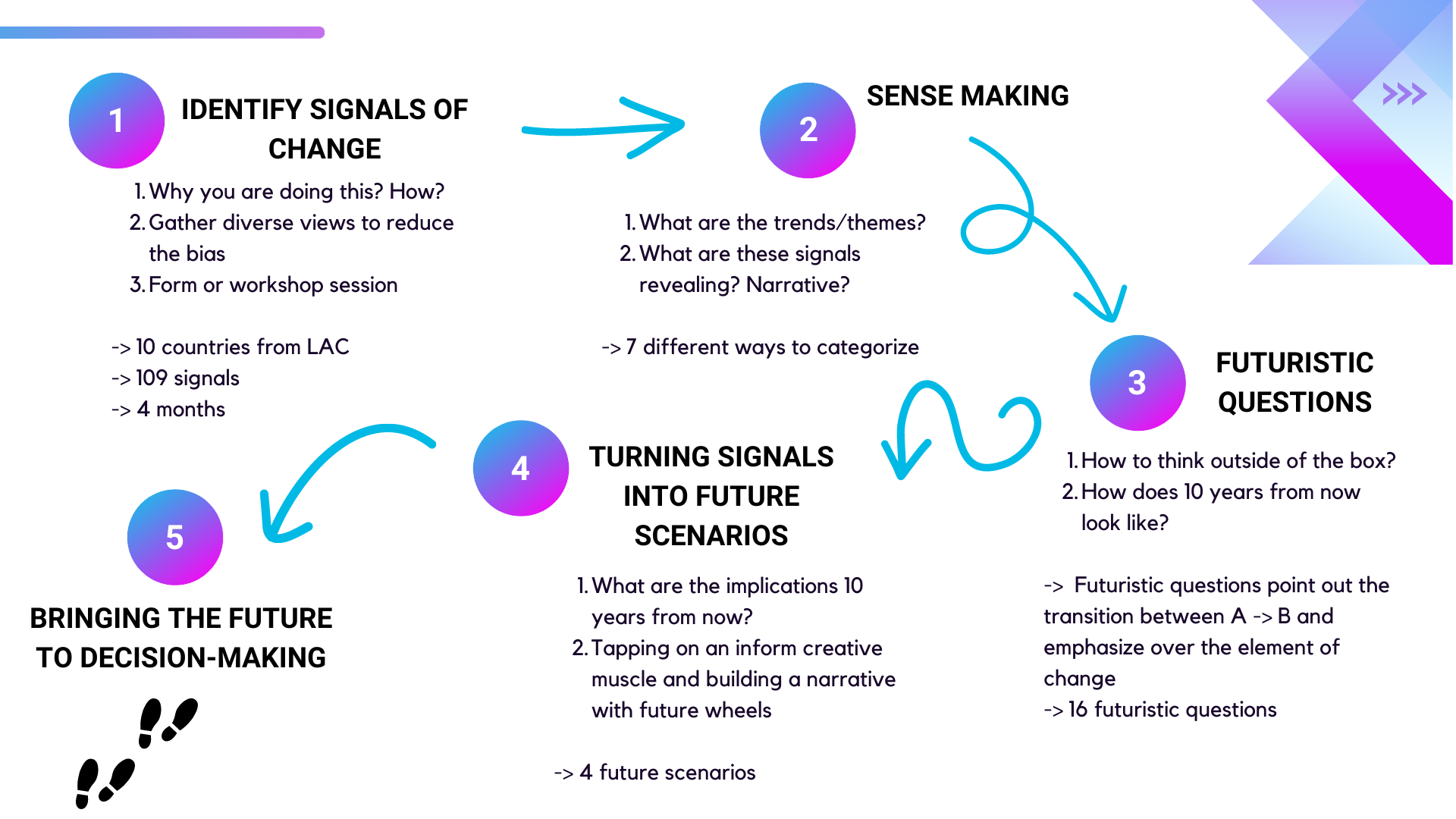A future thinking study on human mobility in the LAC region
To be in the future to make the most of the present moment
27 de Julio de 2023
Why does it matter to think 10 years from now? Are organizations structured to be future-ready?
It is not about trying to predict accurately the future and look like a genius! In this case, you will be stuck waiting for that predicted future to come. And what if it is a future that you don´t like?

Group of Explorers looking for signals of change.
UNDP is starting to be future-ready and enabling its partners to do the same. UNDP has a Strategy and Future Team at the global level and its Accelerator Labs Network in each country office which is equipped with explorers to do the work.
For the last year, a group of explorers from the Accelerator Labs Network in Latin America and the Caribbean (LAC) started to identify signals of change about human mobility in the region and think about plausible scenarios to make a call for action and build a future that we want. We are trying to imagine based on real signals of change of the present how the future of human mobility would look like 10 years from now. The goal of this exercise is to convene all governmental and non-governmental organizations working on human mobility to convert future scenarios into inputs for decision-making. This is what we call strategic foresight, empowering decision-makers and policy planners to use new ways of thinking about, talking about, and implementing strategic plans that are compatible with the unfolding future.
What have we done? We collected 109 signals from 10 countries and transformed them into 16 futuristic questions. From this list of questions, we selected 4 to generate future scenarios alongside experts on the topic (see methodology steps below).

Initiative methodology
What are the changes that we are noticing? We are working on the generation of the following future scenarios based on the identified shifts.
Labor rights
Will we move from a scenario in which labor rights are unequal between migrants and residents of host countries to one in which labor rights are enforced equally regardless of nationality and migration status? I wonder if the call for the enforcement of migrants' labor rights will strengthen the implementation of labor rights for all types of workers.
Universal identities
Will we move from a world in which national identities are configured based on the exclusion of the "other" to one in which they are based on universal values? I wonder, could work and educational spaces contribute to the construction of more inclusive and safer environments?
Caravans & Self-legitimization
Will we move from a modality of individual migration to a modality where mass migration is used as a tool to advocate irregular migratory processes? I wonder, will the migratory caravans be the mechanism that will make irregular migratory processes visible and legitimate?
“Metaverse”
Will we live in a world in which the only possibility of life (analog) is replaced by other forms of life (virtual)? I wonder how information and communication technologies used for telework and tele-education will redefine labor markets, socialization dynamics, and the configuration of cities, what public policies will be necessary to take advantage of their potential and mitigate their risks (data privacy, access to quality services, digital divides)?
What are our next steps?
Generating and exploring future scenarios.
Making a real commitment and call for action from policymakers to take decisions based on plausible futures.
Stay tuned for more to come on the future of Human Mobility in Latin America and the Caribbean!
Also, if you want to have more information about this study or to be part of it reach out to ana.grijalva@undp.org
About the author:

 Locations
Locations



